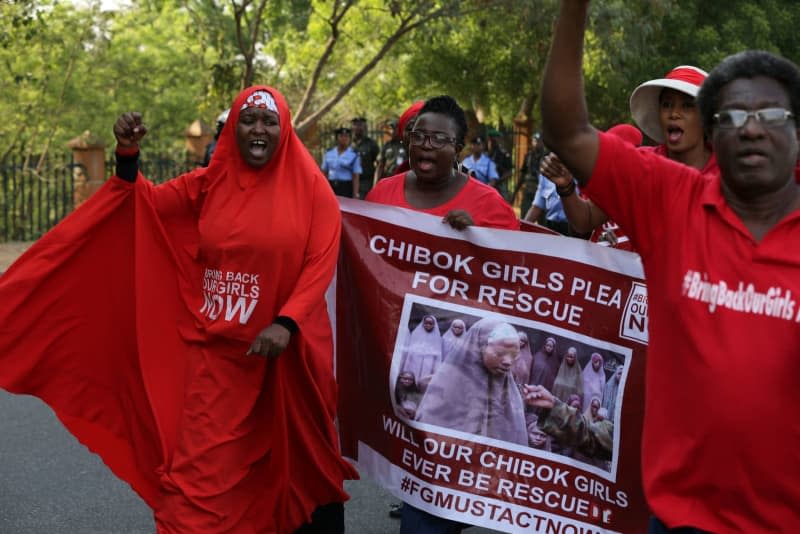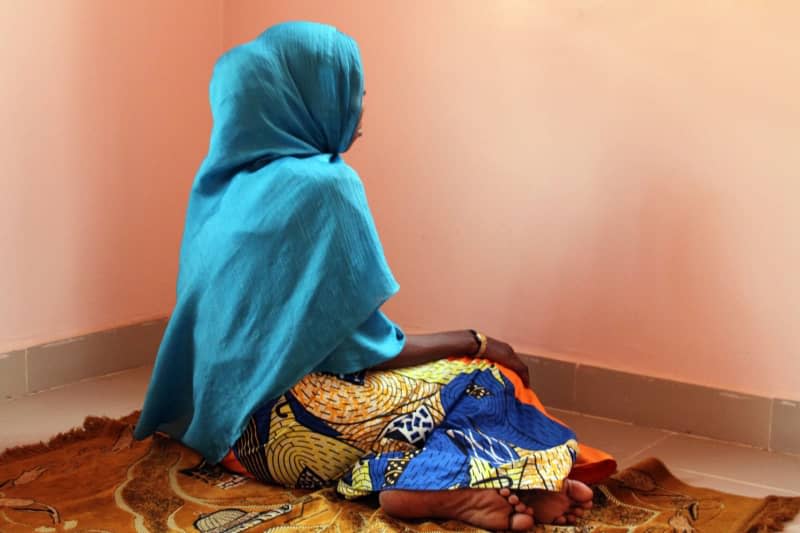Kidnapping now rife in Nigeria, say Chibok girls taken a decade ago

One springtime night a decade ago, bearded men wearing flip-flops kidnapped 276 girls from their boarding school dormitories in Chibok, north-eastern Nigeria.
They forced the teenagers onto lorries and drove them deep into a vast forest in the savannah.
"My captors did a lot of things to me and the other girls," says Glory Mainta, who was abducted that day. "We were beaten, shouted at – there’s nothing that they didn’t do to us. While they didn’t force us to marry them, what they did to us was worse. We were just managing till God saved us."
It was a full two years before one of her fellow students came out of captivity and wandered through the forest. She was malnourished, and was accompanied by an infant and an Islamist terrorist she was forced to marry.
She was one of the lucky ones.
At least 82 of the Chibok girls are still missing.
A decade on, such mass abductions have become commonplace. "It is not only schools. No one is safe in Nigeria today," activist Fatimah Abba Kaka told dpa. She is part of the Bring Back Our Girls movement, which is fighting for the return of the Chibok girls.
There was outrage online at the mass abduction of the "Chibok Girls" by Islamist terrorist militia Boko Haram back in 2014. Celebrities from former US first lady Michelle Obama to Pope Francis and Kim Kardashian all shared the hashtag "#BringBackOurGirls" in their tweets, calling for their rescue.
Washington sent in military support but attempts to bring the girls back failed.
Eventually, 103 girls were ransomed in 2017 and 2018, for some $3 million and the exchange of five Boko Haram leaders, according to reports.
Some of the teens escaped, while others were killed.
That tragic and dramatic incident in 2014 has become a recurring national emergency.
On average, there has been a mass abduction of more than five people almost every day this year, with a total of 1,867 people abducted, says security consultancy SBM.
More than 15,000 people have been victims of mass kidnappings in the past five years, most in the last two years alone.
In March for example, dozens of schoolchildren were abducted again, as were more than 200 women and children from a refugee camp.
Unlike in the past, it is no longer mainly the Islamist terrorists of Boko Haram who are responsible for the kidnappings, but criminal gangs.
Boko Haram, whose name translates as "Western education is sin," defends its crimes by arguing it is fighting for a caliphate in which girls in particular should be forbidden to study.
But the latest findings suggest the kidnapping of the Chibok girls was more of a coincidence during a robbery.
However the outcry worldwide brought the previously almost unknown group into the limelight. Boko Haram saw what a powerful PR tool they had, and seized thousands more girls and young women.
Some were married off to fighters or sold as slaves. Most were ransomed for money.
Now, most of the kidnappings take place in the north-west. Gangs of warlords seize farmers for forced labour or to demand ransom money from members of their families.
Bandits are also behind recent mass abductions of schoolchildren.
The abduction of Chibok girls has absolutely inspired the generation of bandits we have now," Yahuza Getso Ahmad, a security consultant in Abuja, told Semafor Africa.
Nigeria is poor, with more than one in three people living in extreme poverty on less than $2 a day, the World Bank says.
Meanwhile prices are soaring and people are plagued by shortages and crop failure, driving many into crime out of desperation.
Kidnapping people is comparatively low-risk and brings in a lot of money.
While the authorities have responded by banning ransom payments since 2022, in practice, families continue to sell off everything they have to buy back the freedom of their children. SBM, the security consultant, estimates that millions of dollars flow into the blackmailers' coffers every year.
Even if the issue of girls' education is no longer the main motive for the kidnappings, the crimes have severely impacted an entire generation.
More than half of all girls in Nigeria do not attend school. Worried parents marry girls off as early as possible to protect them from worse. Thousands of schools are closed or destroyed, according to UN Children's Fund UNICEF data from 2022.
After Chibok, the Nigerian government launched an initiative to make schools safer, partly helped by tens of millions in aid money and investments from around the world.
But it is unclear where the money is now.
"The safe school initiative that was supposed to protect schools is just on paper, nothing is being done to implement it. So there is a failure in government," says Bring Back Our Girls activist Fatimah Abba Kaka.
"They should analyse the findings of the investigation into how the abduction could take place and where the failure lay. And the government should take care of freeing the remaining girls."
Many of the women kidnapped from Chibok who were later released have returned to school or are studying. But they cannot forget what they went through to get there.
"Whenever I hear that more children have been kidnapped, I feel terrible, helpless," she says. "We are still not safe... It brings back memories of what happened to me. I can never forget being snatched from my parents, my family for so long. I pray this is not the case for those that are kidnapped."
Now 28, she is at university, studying natural and environmental sciences.
Although Nigeria is the continent's largest economy with one of the largest armies, the country is riven by corruption, soldiers are poorly paid and poorly equipped, and the police force barely exists.
The authorities are stretched by multiple crises nationwide.
One of the country's political scientists is not optimistic.
"People are so engrossed with survival that they are not bothered about government failures and those in government are happy that no one is holding them accountable," Chukwudi Victor Odoeme told dpa.


